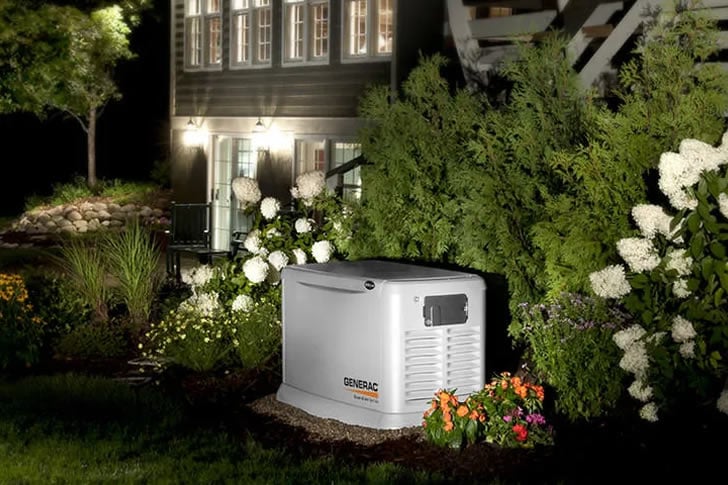Emergencies can strike anytime. Being prepared with home emergency generators, power solutions, and security measures is crucial for safety and convenience.

In an increasingly unpredictable world, ensuring that your home remains powered and secure during emergencies is more important than ever. Home emergency generators can provide a reliable source of electricity during power outages, while security measures can protect your home and family. This comprehensive guide will explore the types of home emergency generators, their benefits, installation considerations, and essential security measures to complement your power solutions.
Understanding Home Emergency Generators
Home emergency generators are devices designed to provide backup power during outages caused by storms, natural disasters, or other unforeseen events. They come in various types, each with its own advantages and considerations.
Types of Home Emergency Generators
- Portable Generators:Description: These are smaller, mobile units that can be easily transported and used to power essential appliances.Fuel Source: Typically powered by gasoline, propane, or diesel.Pros: Cost-effective, versatile, and easy to store.Cons: Limited power output; requires manual setup and refueling.
- Standby Generators:Description: Permanently installed units that automatically turn on during a power outage.Fuel Source: Usually powered by natural gas or propane.Pros: Provides seamless power supply, higher capacity, and can power the entire home.Cons: Higher initial cost and requires professional installation.
- Inverter Generators:Description: These generators produce clean, stable power suitable for sensitive electronics.Fuel Source: Typically gasoline or propane.Pros: Quiet operation, fuel-efficient, and lightweight.Cons: Generally lower power output compared to conventional generators.
Benefits of Home Emergency Generators
- Continuous Power Supply: Keep essential appliances running, such as refrigerators, heating/cooling systems, and medical equipment.
- Increased Safety: Reduce risks associated with power outages, such as food spoilage, loss of heating/cooling, and security system failures.
- Convenience: Automatic standby generators eliminate the need for manual setup during emergencies.
Installation Considerations
When considering a home emergency generator, several factors should be taken into account:
- Power Needs Assessment:Determine which appliances and systems you need to power during an outage. Calculate the total wattage required to ensure you select a generator that meets your needs.
- Fuel Source:Choose a generator that uses a fuel source readily available in your area. Consider the availability of natural gas, propane, or gasoline, and the storage requirements for each.
- Local Regulations:Check local building codes and regulations regarding generator installation. Some areas may have specific requirements for placement and ventilation.
- Professional Installation:For standby generators, hiring a licensed electrician for installation is crucial to ensure safety and compliance with local codes.
- Maintenance:Regular maintenance is essential for optimal performance. Follow the manufacturer’s guidelines for servicing and testing your generator.
Enhancing Home Security
While having a reliable power source is vital during emergencies, ensuring your home is secure is equally important. Here are some essential security measures to consider:
Security Systems
- Alarm Systems:Install a comprehensive alarm system that includes door/window sensors, motion detectors, and a loud siren. Many modern systems can be monitored remotely via smartphone apps.
- Surveillance Cameras:Use security cameras to monitor your property. Opt for systems that offer night vision and remote access to footage.
- Smart Locks:Upgrade to smart locks that allow you to control access to your home remotely. This can be particularly useful during emergencies when you may need to grant access to emergency services.
Outdoor Security Measures
- Lighting:Install motion-activated outdoor lighting to deter intruders. Well-lit areas are less attractive to potential burglars.
- Fencing and Gates:Secure your property with sturdy fencing and gates. Ensure that all entry points are locked and monitored.
- Neighborhood Watch:Engage with your community to establish a neighborhood watch program. This collective effort can enhance security and provide support during emergencies.
Emergency Preparedness
- Emergency Kits:Prepare emergency kits that include essential supplies such as food, water, first aid, flashlights, and batteries. Ensure these kits are easily accessible.
- Communication Plan:Establish a communication plan with family members to ensure everyone knows what to do during an emergency. Designate a meeting place and share contact information.
- Training:Consider taking courses on emergency preparedness, first aid, and CPR. Being trained can make a significant difference in critical situations.
Conclusion
Investing in a home emergency generator and implementing robust security measures can provide peace of mind and protection during unforeseen events. By understanding the different types of generators, assessing your power needs, and enhancing your home’s security, you can create a safe and resilient environment for you and your family. Remember, preparation is key to navigating emergencies effectively, so take the time to plan and equip your home for any situation.









